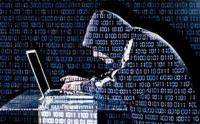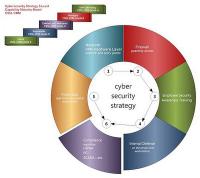-
Cyberattack on Ukraine grid: here’s how it worked and perhaps why it was done
On 23 December 2015, two days before Christmas, the power grid in the Ivano-Frankivsk region of Ukraine went down for a reported six hours, leaving about half the homes in the region with a population of 1.4 million without power. Because of its success, the incident has sent shock waves through cybersecurity circles. Could this happen in the West? In short, yes. This incident underscores the need for diligence and the increased effort in cybersecurity that we are seeing in the government and private sectors. The continuously increasing dependence on the power grid is driving the need for cybersecurity to be part of the design of all new systems.
-
-
Cloud security reaches silicon
In the last ten years, computer security researchers have shown that malicious hackers don’t need to see your data in order to steal your data. From the pattern in which your computer accesses its memory banks, adversaries can infer a shocking amount about what’s stored there. The risk of such attacks is particularly acute in the cloud, where you have no control over whose applications are sharing server space with yours. An antagonist could load up multiple cloud servers with small programs that do nothing but spy on other people’s data. System for defending against memory-access attacks is being implemented in chips.
-
-
Optical illusions which fool computer vision raise security concerns

Computers are learning to recognize objects with near-human ability. But researchers have found that computers, like humans, can be fooled by optical illusions, which raises security concerns and opens new avenues for research in computer vision
-
-
Teenage hacker breaks into personal e-mail of James Clapper, director of national intelligence

A teenage hacker who, in October, broke into the personal e-mail account of John Brennan, the director of the Central Intelligence Agency, has now broken into the personal accounts of James Clapper, director of national intelligence. The high school student he managed to fool Verizon into giving him access to Brennan’s account.
-
-
U.S. assisting Ukraine investigate 23 December cyberattack on power grid

The United States is helping Ukraine investigate last month’s cyberattack last month which disrupted the country’s power grid and left some 80,000 customers without power. Experts say that the 23 December attack against western Ukraine’s Prykarpattyaoblenergo utility was the first known power outage caused by a cyberattack.
-
-
Kaplan launches cybersecurity education company
Education provider Kaplan announced Wednesday that it has created a 12-person spin-off, split from a separate sister company called Cybervista, to offer Web-based cybersecurity courses. The creation of this new cybersecurity unit is an indication that the private sector is aware of, and trying to benefit from, the shortage of qualified security employees.
-
-
Tool improves government computer network security

Government agencies, along with state and local governments, could receive a helping hand from a computer network security tool developed by computer scientists and engineers at DOE’s Lawrence Livermore National Laboratory. The LLNL software-based technology, known as the Network Mapping System (NeMS), does not allow a rogue computer which has gained access to a computer network to use a company’s virus protection systemd. The goal is to uncover any unauthorized devices to ensure a company is not at risk.
-
-
Jihadi cyberattacks; ISIS’s sex slaves; Iran’s missile test

Hackers affiliated with the Jihadist group have been developing the capabilities to attack U.S. government and civilian targets, and such targets in other countries; Theologians working with ISIS have issued detailed and specific ruling on women slaves – explaining when “owners” of these women can have sex with them and who else among ISIS members may be entitled for sex services from enslaved women; On 26 December, the Iranian navy fired several rockets near three Western warships in the Gulf of Hormuz.
-
-
Making mobile health more secure

With Internet-connected medical technology and digitized health records on the rise, cybersecurity is a growing concern for patients and hospitals alike. For example, a patient’s insulin pump may accept dosage instructions from unauthorized smartphones that have been infected with malicious software, or a patient’s fertility-tracking app could expose itself to nearby strangers by probing for a Bluetooth device to connect with. One research team is taking a holistic approach to strengthening the medical system’s security — from the computer networks that support hospitals, to the cloud, to the smart phone in your pocket.
-
-
A sixth-grader helps people with secure passwords

It is cheaper than a couple of subway rides, more powerful than almost any hacker (except maybe the NSA). And, if you think about it, not so hard to remember. For $4, and 11-year old sixth-grader will fix you up with a secure password — actually a pass phrase of six words. She uses a well-known technique called Diceware that uses rolls of dice to select words at random from an encoded list.
-
-
Images, codes offer alternative to multiple device password systems
A system using images and a one-time numerical code could provide a secure and easy to use alternative to multi-factor methods dependent on hardware or software and one-time passwords. The developers of the system believe their new multi-level authentication system GOTPass could be effective in protecting personal online information from hackers. It could also be easier for users to remember, and be less expensive for providers to implement since it would not require the deployment of potentially costly hardware systems.
-
-
Iranian hackers attacked New York dam

In 2013, Iranian government hackers infiltrated the control system of Bowman Avenue Dam in Rye, New York, located twenty-five miles from New York City. Using a cellular modem, the hackers could have released larger volumes of upstream water without warning. As dams go, the Rye dam is small at about 20ft tall. There was some confusion initially, as DHS and DOE thought a similarly named dam in Oregon — the Arthur R. Bowman Dam – was the one hacked. The Oregon dam, at 245 feet, is much bigger, and hacking its control systems could have had much more serious consequences.
-
-
WiFi signals can be used to detect attackers

Wireless devices are increasingly used for critical roles, such as security systems or industrial plant automation. Although wireless transmissions can be encrypted to protect transmitted data, it is hard to determine whether a device has been tampered with. Computer scientists have discovered that physical attacks on devices connected to the Internet can be detected by analyzing WiFi signals.
-
-
Safer cyberspace through experimental cybersecurity research

How do cybersecurity experts discover how properly to defend a system or build a network which is secure? As in other domains of science, this process involves hypothesis, experimentation, and analysis — or at least it should. In reality, cybersecurity research can happen in an ad hoc fashion, often in crisis mode in the wake of an attack. A group of researchers has imagined a different approach, one in which experts can test their theories and peers can review their work in realistic but contained environments — not unlike the laboratories found in other fields of science. The researchers issued a report calling for a new generation of experimental cybersecurity research.
-
-
The mind of a cyberterrorist, a neglected aspect of cybersecurity
A new study is delving into an aspect of cybersecurity rarely explored before now: the human component. The reason why this topic is lesser known, a leading expert says, is that security professionals become very focused on the technological side of responding to attacks and lack the social psychology background to analyze and understand the human being on the other side of that attack.
-
- All
- Regional
- Water
- Biometrics
- Borders/Immig
- Business
- Cybersecurity
- Detection
- Disasters
- Government
- Infrastructure
- International
- Public health
- Public Safety
- Communication interoperabillity
- Emergency services
- Emergency medical services
- Fire
- First response
- IEDs
- Law Enforcement
- Law Enforcement Technology
- Military technology
- Nonlethal weapons
- Nuclear weapons
- Personal protection equipment
- Police
- Notification /alert systems
- Situational awareness
- Weapons systems
- Sci-Tech
- Sector Reports
- Surveillance
- Transportation
Advertising & Marketing: advertise@newswirepubs.com
Editorial: editor@newswirepubs.com
General: info@newswirepubs.com
2010-2011 © News Wire Publications, LLC News Wire Publications, LLC
220 Old Country Road | Suite 200 | Mineola | New York | 11501
Permissions and Policies
Editorial: editor@newswirepubs.com
General: info@newswirepubs.com
2010-2011 © News Wire Publications, LLC News Wire Publications, LLC
220 Old Country Road | Suite 200 | Mineola | New York | 11501
Permissions and Policies
